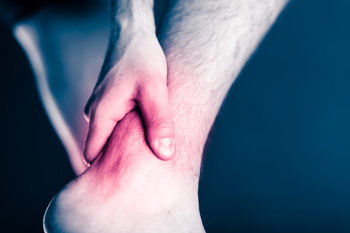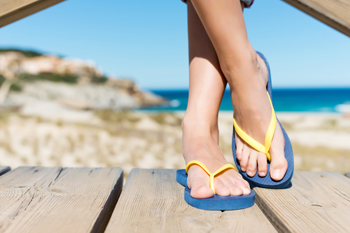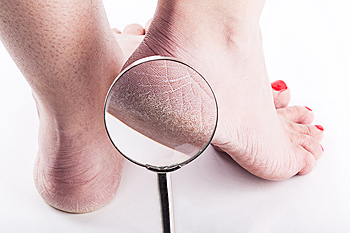 Foot pain can be a familiar ailment among people who enjoy running. There are twenty six bones in each foot, surrounded by several ligaments, tendons, and muscles. The chances of injuring the foot may increase if proper stretching exercises are not performed. There are common causes of foot pain that may come from running for prolonged periods of time. These can include plantar fasciitis, which impacts the heel and arch of the foot. Stress fractures are considered to be a hairline fracture, and can gradually develop in specific parts of the foot. Both types of injuries require time off from running, so the healing process can begin. If you have any form of foot pain, it is strongly advised that you consult with a podiatrist who can help you with proper treatment options.
Foot pain can be a familiar ailment among people who enjoy running. There are twenty six bones in each foot, surrounded by several ligaments, tendons, and muscles. The chances of injuring the foot may increase if proper stretching exercises are not performed. There are common causes of foot pain that may come from running for prolonged periods of time. These can include plantar fasciitis, which impacts the heel and arch of the foot. Stress fractures are considered to be a hairline fracture, and can gradually develop in specific parts of the foot. Both types of injuries require time off from running, so the healing process can begin. If you have any form of foot pain, it is strongly advised that you consult with a podiatrist who can help you with proper treatment options.
Foot Pain
Foot pain can be extremely painful and debilitating. If you have a foot pain, consult with one of our podiatrists from Canonsburg Podiatry Associates. Our doctors will assess your condition and provide you with quality foot and ankle treatment.
Causes
Foot pain is a very broad condition that could be caused by one or more ailments. The most common include:
- Bunions
- Hammertoes
- Plantar Fasciitis
- Bone Spurs
- Corns
- Tarsal Tunnel Syndrome
- Ingrown Toenails
- Arthritis (such as Gout, Rheumatoid, and Osteoarthritis)
- Flat Feet
- Injury (from stress fractures, broken toe, foot, ankle, Achilles tendon ruptures, and sprains)
- And more
Diagnosis
To figure out the cause of foot pain, podiatrists utilize several different methods. This can range from simple visual inspections and sensation tests to X-rays and MRI scans. Prior medical history, family medical history, and any recent physical traumatic events will all be taken into consideration for a proper diagnosis.
Treatment
Treatment depends upon the cause of the foot pain. Whether it is resting, staying off the foot, or having surgery; podiatrists have a number of treatment options available for foot pain.
If you have any questions, please feel free to contact our office located in Canonsburg and McMurray, PA . We offer the newest diagnostic and treatment technologies for all your foot care needs.




